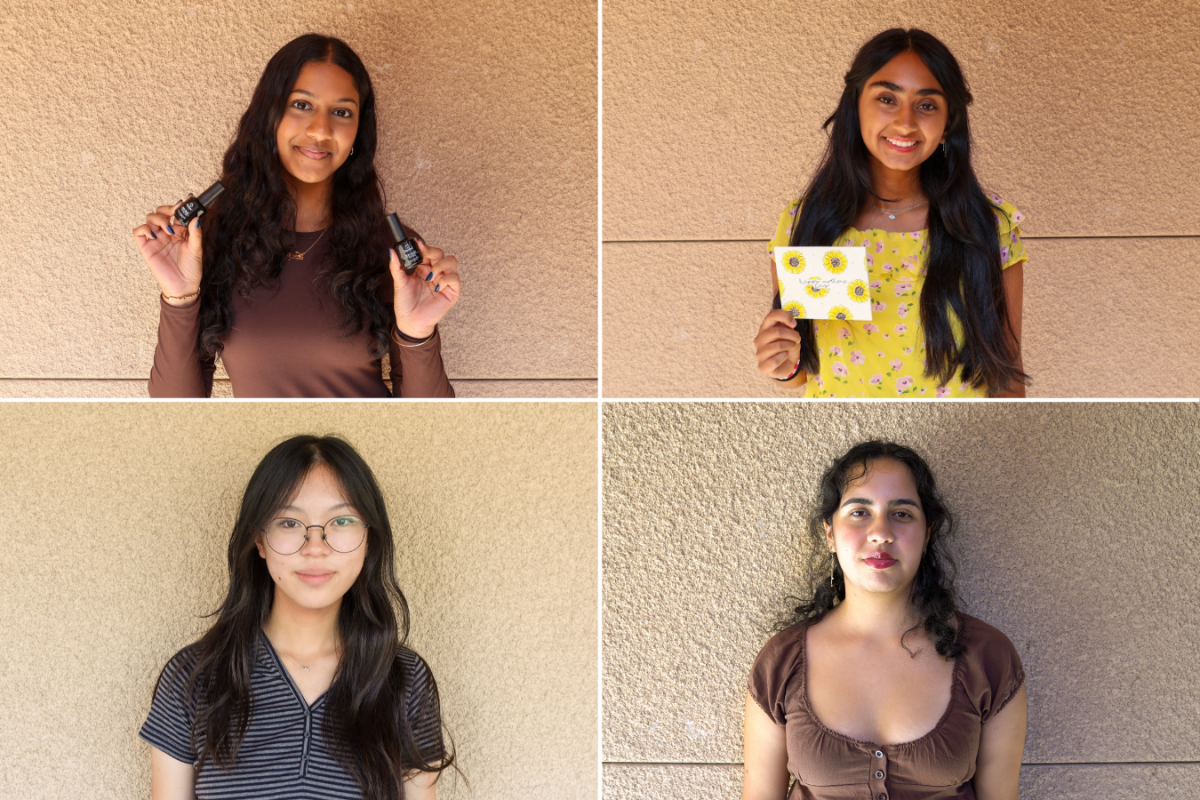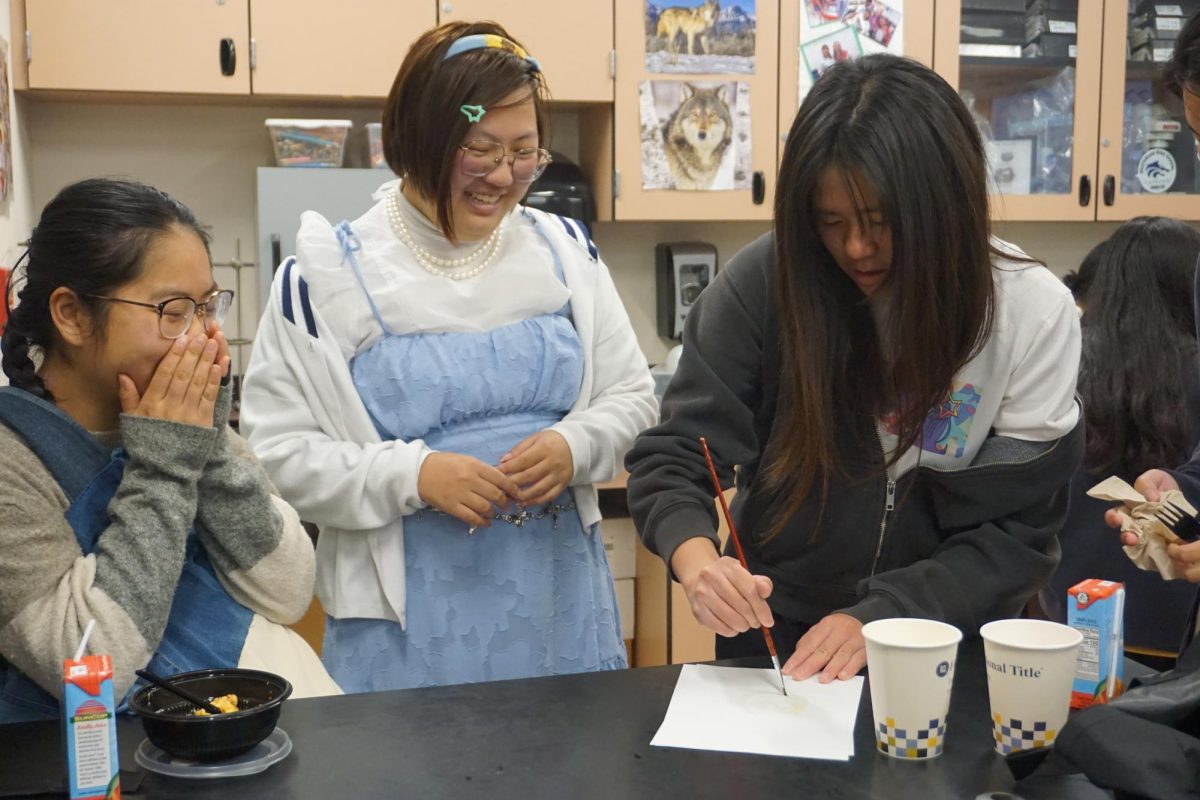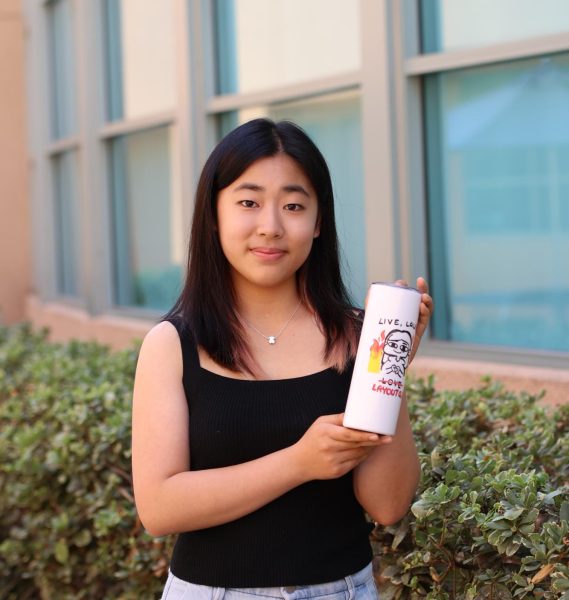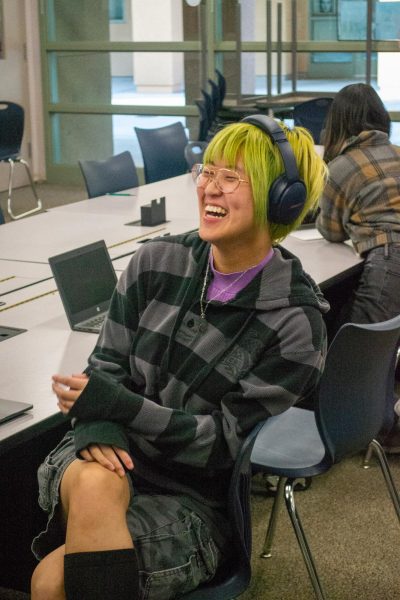Reports, graphs upon graphs and an overload of information spring to mind upon hearing the word “research.” However, Research Society Club hopes to show how research is not just about facts and figures. From exploring lava lamps to constructing marshmallow catapults, the club combines innovative crafts with scientific concepts to allow students to unleash their inner curiosity.
Like a conventional STEM club, Research Society Club teaches scientific concepts to students through project based research. However, the club goes beyond the lecture-based formats by holding weekly experiments.
“Our club basically encourages students to have opportunities to not just learn information, but have the chance to be inside of their own learning,” president senior Kira Matsuoka said. “By having the opportunity to work hands-on, they choose what they want to take from it.”
Creative twists accompany the delivery of each lesson. For example, a murder mystery plot was woven into a lesson about the complexities of blood in the anatomy to heighten the thrill. In another meeting, students learned about the relationship between endothermic and exothermic reactions within ice cream by making it themselves.
“We get to learn about science in a fun and interactive way rather than being under stressful conditions in a science class at school,” publicist senior Mina Sun said.
Board members formulate these innovative yet engaging activities, taking charge of at least one experiment per semester. This has led to a diverse range of engaging experimental ideas that are simple, fun and relatable.
“I think it’s a great place to find a community of people who love to foster their learning, preparing them for research in the future, whether it be for their career or to excel in their classes.” club member senior Chelsie Hui said.
Recently, the club hosted a garbage clean-up effort at Newport Beach as part of its mission to help communities outside of school, serving as a great volunteering opportunity that connected back to the scientific importance of environmental conservation.
“I’m really proud that we were able to make an impact on our local beach environment,” Matsuoka said, “It’s really fun to have the opportunity to actually make a change and get rid of all the pollution.”
By allowing students to engage in a variety of enjoyable opportunities, Matsuoka hopes that students will understand that learning about science can go beyond just receiving a certain grade in a class.
“I want people to take away that science is a beautiful art,” Matsuoka said. “It is everywhere. If you close your eyes and then you open it, and you look at everything around the room, everything is from science and math. If we take away the time to find it and look for it, we see the beauty in it.”
Research Society Club meets every Tuesday at lunch in Room 1003. For more information, visit @nhs.researchsociety on Instagram.





















































